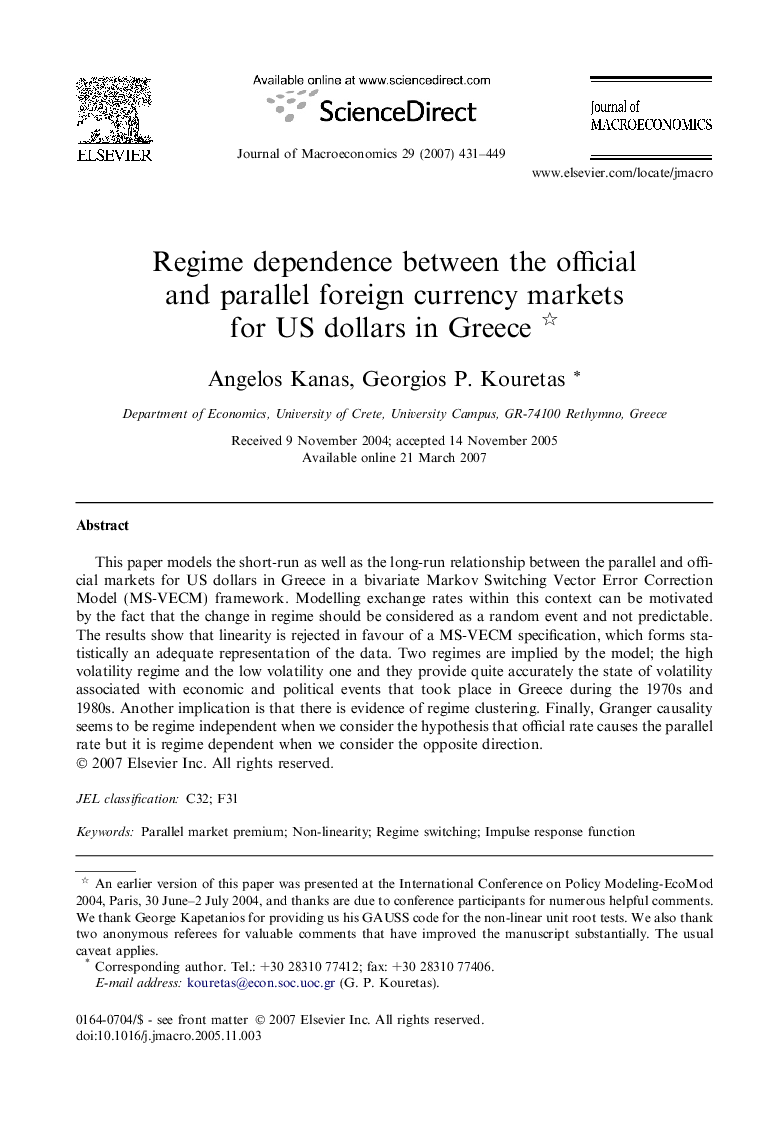| Article ID | Journal | Published Year | Pages | File Type |
|---|---|---|---|---|
| 966315 | Journal of Macroeconomics | 2007 | 19 Pages |
Abstract
This paper models the short-run as well as the long-run relationship between the parallel and official markets for US dollars in Greece in a bivariate Markov Switching Vector Error Correction Model (MS-VECM) framework. Modelling exchange rates within this context can be motivated by the fact that the change in regime should be considered as a random event and not predictable. The results show that linearity is rejected in favour of a MS-VECM specification, which forms statistically an adequate representation of the data. Two regimes are implied by the model; the high volatility regime and the low volatility one and they provide quite accurately the state of volatility associated with economic and political events that took place in Greece during the 1970s and 1980s. Another implication is that there is evidence of regime clustering. Finally, Granger causality seems to be regime independent when we consider the hypothesis that official rate causes the parallel rate but it is regime dependent when we consider the opposite direction.
Related Topics
Social Sciences and Humanities
Economics, Econometrics and Finance
Economics and Econometrics
Authors
Angelos Kanas, Georgios P. Kouretas,
